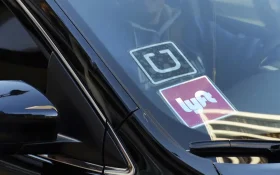Ride-hailing giants Uber and Lyft have announced that they will continue operating in Minnesota following the state lawmakers’ approval of a measure to increase driver pay.
Although the new pay rates are lower than those approved by the Minneapolis City Council in March, they aim to ensure that drivers across the state earn at least the equivalent of the city’s minimum wage of $15.57 per hour. However, this may result in higher costs for passengers.
The compromise, which was passed on the last day of the legislative session and sent to Gov. Tim Walz for signing, requires ride-hailing companies to pay drivers a minimum of $1.28 per mile and $0.31 per minute while transporting riders anywhere in the state, starting Dec. 1.
This means that a 10-mile ride lasting 15 minutes would result in the driver being paid a minimum of $17.45, not including expenses like gas or vehicle wear-and-tear. However, drivers are not compensated for the time spent waiting for riders to request rides.
Eid Ali, president of the Minnesota Uber/Lyft Drivers Association, expressed his happiness with the victory for drivers but also disappointment that the statewide measure will override the more generous Minneapolis rates.
The Minneapolis plan would have required companies to pay drivers at least $1.40 per mile and $0.51 per minute for the time spent transporting a rider within the city.
Uber and Lyft had threatened to leave the state if the Minneapolis council-backed rates were implemented, arguing that the rates were too high. However, with the new compromise, both companies have stated that they will continue to operate in the city and throughout the state.
A recent study commissioned by the Minnesota Department of Labor and Industry found that, after factoring in expenses, 50% of Uber and Lyft drivers in the Twin Cities metro area earned $13.63 per hour or less while driving, and in the rest of Minnesota, 50% of drivers earned $8.12 per hour or less.
While some supporters of the original Minneapolis measure are disappointed with the compromise, others see it as a significant step forward in ensuring fair pay for ride-hailing drivers.
Minnesota is now the first state to establish statewide minimum pay for drivers, setting a precedent for other states to follow.
The Associated Press contributed to this article.
